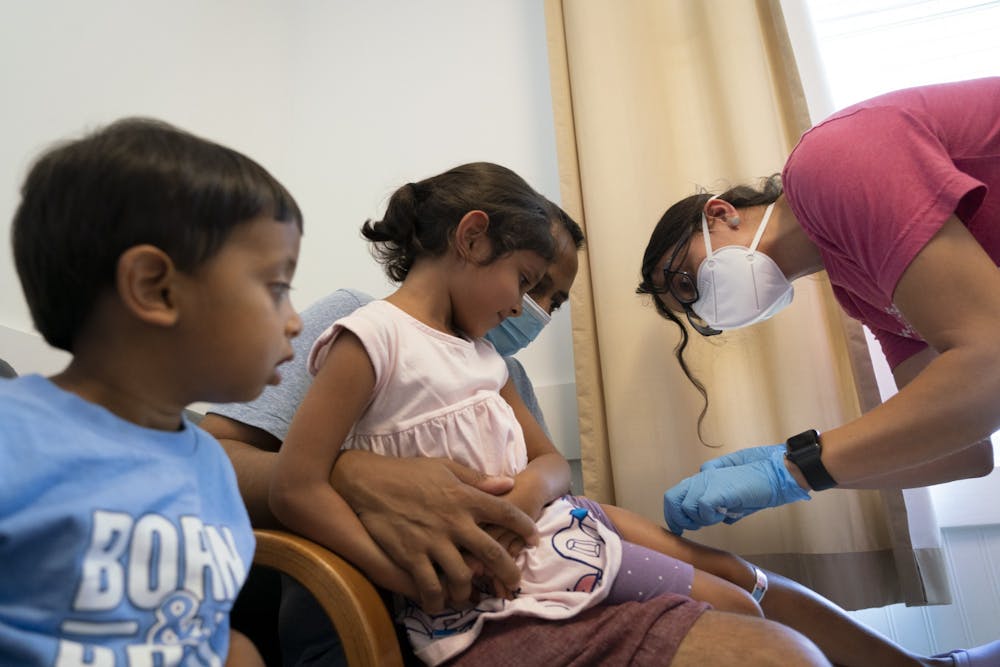“It’s been very frustrating to have these extensive delays, and have those delays coupled with the lift of all precautions and mandates in the area associated with masking when we’ve left children under 5 unprotected,” Dempsey said.
Noel Brewer, a parent of two newly eligible children, prominent cancer and vaccination researcher and professor at UNC Gillings School of Global Public Health, said he was also frustrated by the delay in the vaccine’s approval. He said he would return to work in person in the fall for the first time since the start of the pandemic because his children would be vaccinated.
Brewer said his 4-year-old son is used to the precautions of the pandemic and has learned to live with COVID-19 as a fixture in daily life.
“He’s a masking native,” he said. “He knows you wear a mask on a plane, you wear a mask when you go indoors, it’s second nature to him. In fact, it sets him at ease.”
According to a survey conducted in April by the Kaiser Family Foundation, a health policy nonprofit, only 18 percent of parents said they were eager to vaccinate their child. Nearly 30 percent of parents say they would not vaccinate their newly eligible child, and another 11 percent said they would only do so if it was required.
Dr. Matthew Vogt, an associate professor of pediatric infectious diseases at UNC, said the vaccines have been proven to be both safe and effective.
Vogt said that every pediatrician and scientist he knows supports the vaccine's expansion to younger age groups.
“Everybody I know who has kids that are suddenly in this eligible age group — and these are the people who understand the science and see the sick kids in the hospital — they are all going to get their kids vaccinated as soon as they can,” Vogt said.
He explained that rare side effects like myocarditis, which is the inflammation of the heart muscle, have not occurred in children under 5 as much as in other age groups.
Vogt also said that while most children do not suffer from severe COVID-19 symptoms, occasionally some do.
However, he added that everyone will contract COVID-19 eventually, and the best protection against developing serious symptoms is a vaccination.
“If you’re someone whose immune system has already had the experience on board, to have the antibodies and the immunity ready to go, your odds of being one of these severely ill people goes way, way down,” Vogt said. “Even if you can’t prevent the infection, these vaccines are incredibly good at keeping you from being that severely ill person.”
To get the day's news and headlines in your inbox each morning, sign up for our email newsletters.
Children who are 3 years old and above can be vaccinated at any vaccination clinic, including pharmacies and grocery stores. Children younger than 3 can only receive vaccines at local health departments and doctor’s offices.
Several places in the Chapel Hill area are offering vaccines for children under 5, including UNC Pediatrics at Weaver Crossing and the Orange County Health Department.
The Chapel Hill Children and Adolescents’ Clinic is holding a vaccination event for children under 5 on Friday, where Dempsey’s 19-month-old will be vaccinated.
@ethanehorton1
@DTHCityState | city@dailytarheel.com
Ethan E. HortonEthan E. Horton was the 2023-24 city & state editor at The Daily Tar Heel. He previously served as a city & state assistant editor and as the 2023 summer managing editor.




